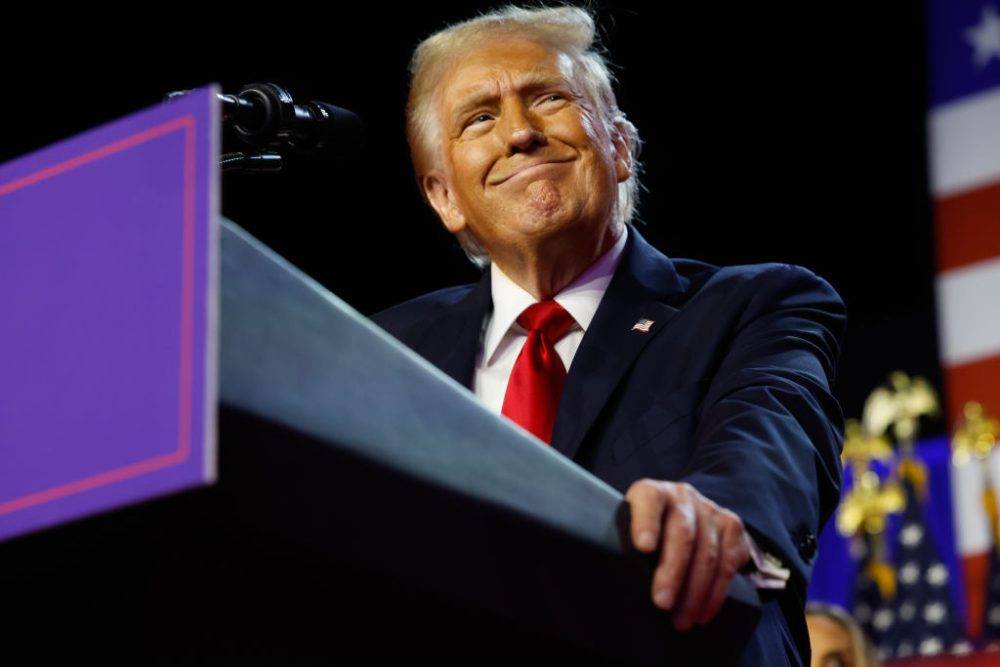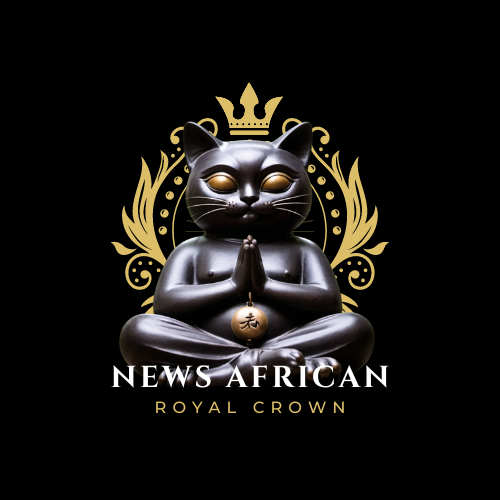
US President Donald Trump. (File photo by Chip Somodevilla/Getty Images)
The department of international relations on Monday described a United States state department directive to cease all cooperation with the South African National Defence Force (SANDF) as a logical consequence of President Donald Trump’s decree suspending all aid to the country.
“This is an implementation order of the 7 February executive order. It is not a new decision,” Chrispin Phiri, the spokesperson for international relations, told the Mail & Guardian.
The memorandum, dated 13 March, from the state department to Aaron Harding, the chief operating and chief financial officer of the Defense Security Cooperation Agency, instructs the agency not to commit any new funds to the SANDF under the International Military Education and Training Programme (IMET).
It stressed that “any IMET students from the Republic of South Africa currently enrolled in IMET training in the United States should be sent home as soon as practicable”.
The order also speaks to the Foreign Military Financing (FMF) programme, which extends loans to friendly foreign nations to purchase US military material.
“The provision of any equipment, training or other assistance funded with FMF should not be provided to the Government of South Africa regardless of whether funds have already been expended.”
It adds that any equipment that had been destined for South Africa should be stored, and the cost of the storage borne by South Africa, until such time that the equipment could be redirected to another country.
Any South Africans who found themselves in the US on a study programme funded by FMF should not be allowed to complete their training but should be sent home as soon as possible, the missive continued, adding that South Africa must be removed as a participant from any programmes related to multilateral peacekeeping operations.
“Implementation of such activities may continue provided South Africa is removed as a participant or beneficiary and provided there is no other benefit from those multi-lateral activities to the government of South Africa.”
SANDF spokesperson Siphiwe Dlamini could not be reached for comment.
Defence analyst and former Democratic Alliance MP Kobus Marais said the order was of practical and political consequence.
“While we don’t rely heavily on the USA support for our military or defence related capabilities, any drastic change may impact negatively on our defence capabilities,” he said.
‘Our relationships with Boeing (BBJ) and Lockheed Martin (C130s), joint military exercises, for example, Op Shared Accord, training, and exchange of military staff will be negatively affected.
“The USA can also be a strategic partner in the use of satellite technology to monitor our maritime responsible areas, our landborders, and our airspace. We’ll require partnerships as we’ll not be able to afford it on our own.”
Marais added that South Africa’s global image and interests would be compromised if the country were “associated with the perceived enemies of the USA”.
The White House has justified Trump’s executive order as sanction for South Africa championing terrorism abroad and fomenting race-based violence at home. State department spokesperson Tammy Bruce has said the Trump administration is concerned about the country’s ties with Russia and Iran and seeking to encourage policy change.
“While championing terrorism and autocratic regimes abroad, South Africa has committed similar human rights violations at home,” the White House said in a so-called fact-sheet published days after the executive order was signed.
Trump has repeatedly accused the government of persecuting Afrikaners, in response to which he has offered the minority refuge in the US at a time when his administration is shutting down refugee resettlement programmes and waging an aggressive campaign of expelling foreign nationals deemed undesirable.
Bruce said earlier this month that the Trump administration is concerned about the country’s ties with Russia and Iran, as well as its land legislation, and seeking to encourage policy change.
The remarks followed the expulsion of South Africa’s ambassador to the US, Ebrahim Rasool, and prompted concern, Phiri said at the time, that Washington was seeking to dictate South Africa’s policy choices.
“We are concerned that the comments could suggest that the US wants to interfere in SA’s sovereign, national policy.”
The US embassy on Monday did not respond to questions about a New York Times report that officials had repurposed buildings in Pretoria as ad hoc immigration centres and prioritising applications from Afrikaners for refugee status.
“The teams are studying more than 8200 requests expressing interest in resettling to the United States and have already identified 100 Afrikaners who could be approved for refugee status,” the newspaper reported.
“The government officials have been directed to focus particularly on screening white Afrikaner farmers.”
The article quoted a memo sent to the US embassy in Pretoria as indicating that by mid-April, the officials will “propose long-term solutions, to ensure the successful implementation of the president’s vision for the dignified resettlement of eligible Afrikaner applicants”.



